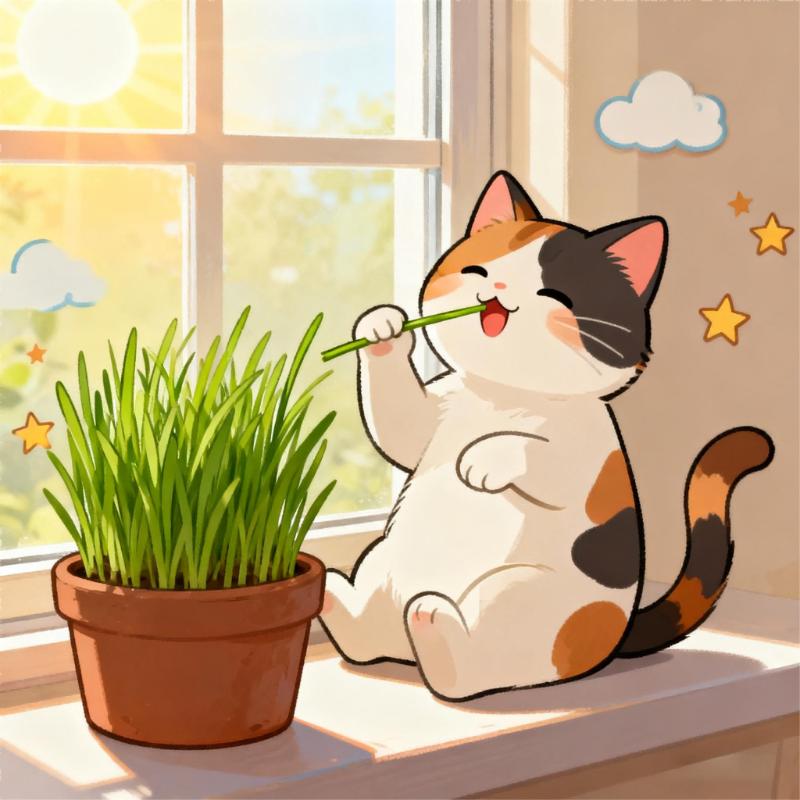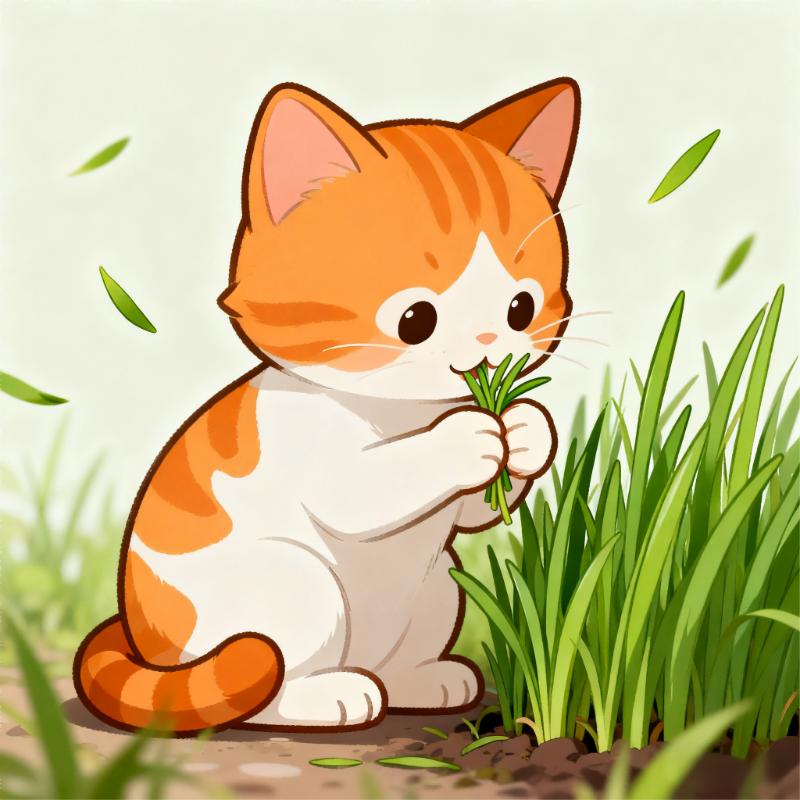

Dec. 31, 2025
There’s Practical Survival Wisdom Behind It Most cat owners with houseplants have probably experienced the "cat grass battle" — carefully nurtured cat grass is chewed unevenly, and even the weeds in potted plants are not spared by cats. In fact, cats’ love for eating grass is not mischief, but an innate survival instinct engraved in their genes, with multiple practical needs behind it.

Firstly, eating grass acts as a "natural emetic" for cats. When cats lick their fur to clean themselves, they inevitably swallow a lot of hair. These hairs form hairballs in their intestines and stomach, which may cause constipation or vomiting. The crude fiber in grass can stimulate intestinal peristalsis, helping cats expel hairballs and relieve gastrointestinal discomfort.
Secondly, grass serves as a "nutritional supplement". The meat that cats eat daily lacks some vitamins and minerals. Nutrients such as folic acid in grass can make up for the nutritional gaps in their diet and promote metabolism. At the same time, the fresh scent of grass can also stimulate appetite, which is helpful for cats with poor appetite.

Finally, eating grass can relieve stress. When cats are in a tense or anxious state, the action of chewing grass can make them feel relaxed, just like humans biting their nails when nervous. This behavior helps cats regulate their emotions and adapt to environmental changes.
It should be noted that cats should be provided with non-toxic cat grass or wheat grass, avoiding the ingestion of weeds sprayed with pesticides to ensure their health and safety.